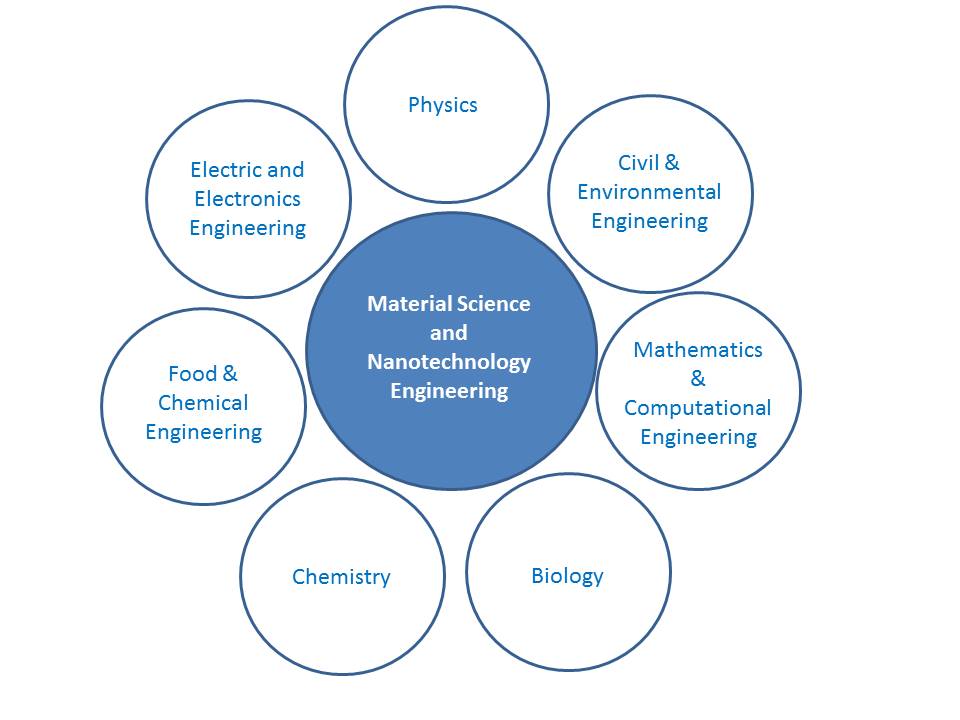Materials Science Engineering holds a promising career outlook in Pakistan, where technological advancements and innovation thrive. This field is pivotal in diverse industries, from electronics and construction to healthcare. In Pakistan, professionals in Materials Science Engineering find ample opportunities for research and development in academia and industry, focusing on optimizing and creating materials for various applications. As the manufacturing sector expands and infrastructure development surges, the demand for experts in this field is significant. Furthermore, Pakistan’s progression in renewable energy, healthcare, and aerospace presents a unique and rewarding path for materials scientists and engineers, offering the chance to pioneer technological advancements and contribute to a sustainable, cutting-edge future.
[lwptoc]
Materials Science Engineering
Materials engineers create, process, and test the properties of materials in the creation of a range of products, ranging from computers and wings of aircraft and biomedical equipment and golf clubs. They research the properties and structure of ceramics, metals composites, plastics nanomaterials (extremely tiny substances), and various other materials to develop new materials that can meet mechanical, electrical, chemical, and mechanical demands. They also help choose suitable substances for specific products and devise new methods to use existing materials.
Materials engineers are those who create and process the materials. They are the ones who test the materials to ensure that any kind of product is possible to create in the form of computer chips. They also research and analyze the properties and structure of metals. The experts who have completed their studies in materials science examine the properties and fundamental elements of ceramics and plastics, which are non-material.
Materials Science Engineering Career Scope in Pakistan

Materials Science Engineering Career Scope
You may become an engineer in metals and obtain your specialisation in metals, such as steel and metals, if you have finished your studies on the topic and have a degree in it. You may work as a plastics engineer and be tasked with developing and testing new polymers, which are another name for plastics. You may design and produce a wide variety of new apps in this way. Students that are interested in pursuing materials engineering must complete courses in high school science, including biology, physical chemistry, and computer programming, as well as arithmetic, including trigonometry, algebra, or calculus.
After completing their studies in material science, individuals have the choice of selecting a career path and a line of work that will enable them to work as engineers in the semiconductor processing industry. You will apply the concepts and underlying theories of material science in this article. To produce real and cutting-edge electronic materials and various applications connected to them, you will use your engineering principles. the scientific study of the properties and uses of substances used in manufacture or building, including metals, ceramics, polymers, composites, and other substances.
Duties Performed by Materials Scientists
These specialists’ duties include evaluating current and forthcoming projects and working with other engineers. They develop estimates, make budget plans, analyse labour costs, and write reports. They are capable of managing any type of situation. They offer guidance for doing various processes and testing methods.
Job Options Opened For Materials Scientists
- You can be an engineer in ceramics, and in this position, you must be able to create and manufacture ceramic materials. You must try to develop processes that will be successful and accomplished in creating valuable products. The scientists who study materials must make use of high-temperature nozzles for rockets.
- There is a possibility to become composites engineers for these scientists of materials. In this position, engineers must develop and manufacture materials that have unique and engineered characteristics to design and develop applications for automobiles and aircraft and applications related to these products.
Material Science and Engineering in Pakistan Major Subjects:
The following is a list of the material science and technology courses that Pakistani universities provide.
- Introduction to Material Science and Engineering
- Mechanics of Materials
- Metals and Alloys
- Probability Methods in Engineering
- Ceramics and Glasses
- Polymers
- Composite Materials
- Surface Engineering
- Calculus
- Introduction to IT
- Applied Physics
- Extraction of Materials
- Computer Aided Drafting
- Industrial Chemicals
- Material Thermodynamics
- Engineering Mathematics
- Material Characterization Techniques
- Welding and Joining Processes
- Computational Tools in Materials
- Nanomaterials
- Corrosion and Material Protection
- Heat Treatment and Phase Transformation
- Crystal Structure and Analysis
Employers for Materials Scientists
Graduates of engineering and materials science can be found in a variety of fields which include:
- Aerospace
- Defense forces and Armed Forces
- Automotive
- Manufacturing
- Nuclear industry
- Oil and Gas
- Pharmaceuticals
- Research and development in the field of science
- Sports equipment
- Telecommunications
- Transport
- Utilities.
Materials Science Engineering Career Opportunities
Directly related jobs to your degree are:
- CAD technician
- Design engineer
- Materials engineer
- Metallurgist
- Product/process development scientist
- Scientist in research (physical sciences)
- Technical sales engineer
The jobs where your degree could be beneficial are:
- Analytical chemical
- Biomedical engineer
- Engineer in geotechnical engineering
- Higher education lecturer
- Consultant in management
- Manufacturing systems engineer
- Patent examiner
- Project manager
- Quality manager
Universities offering Material Science and Engineering:
In Pakistan, there are a large number of top-notch universities that provide material science and engineering at the undergraduate and graduate levels. the list of some of them follows;
- Institute of Space Technology
- University of Management and Technology
